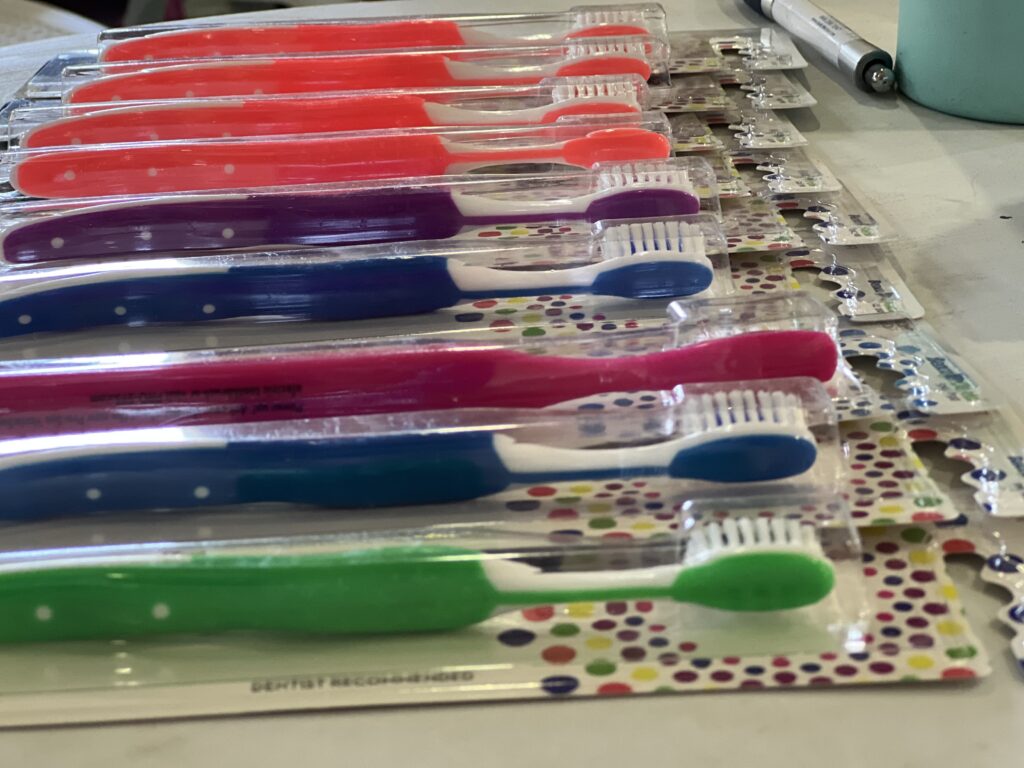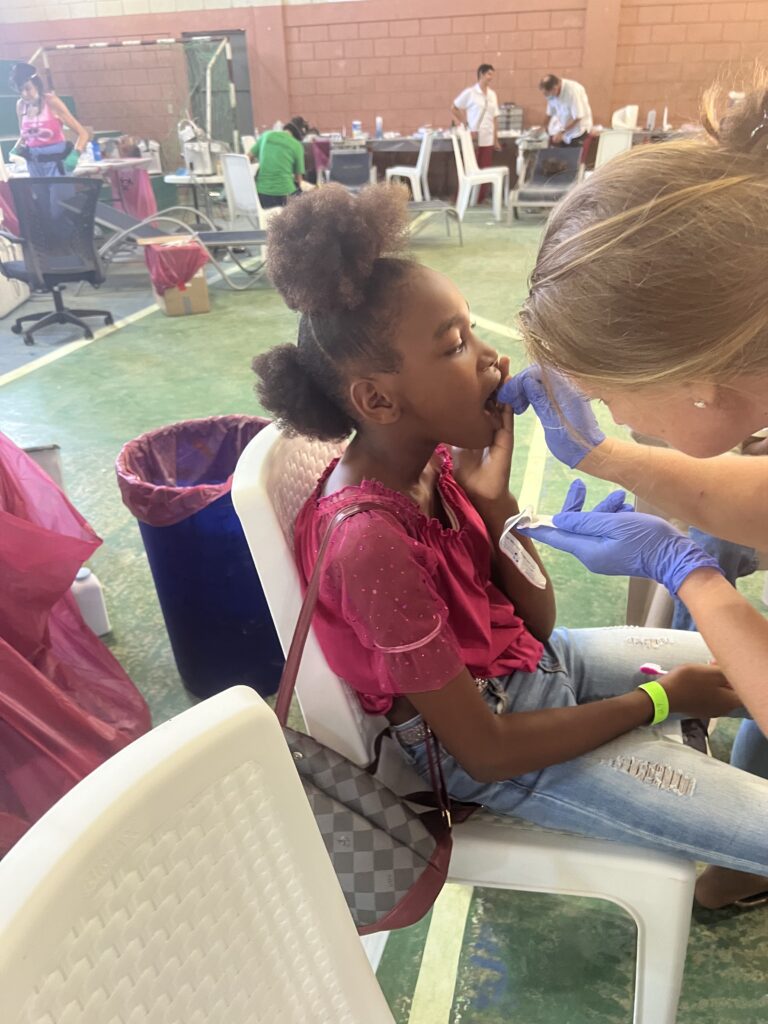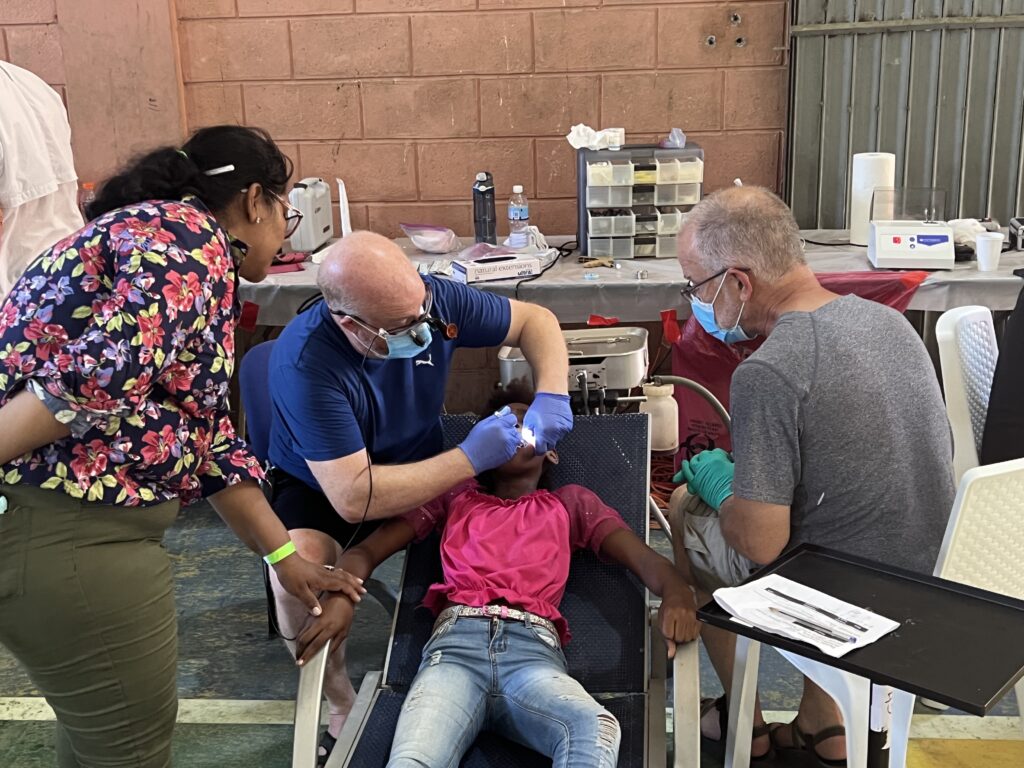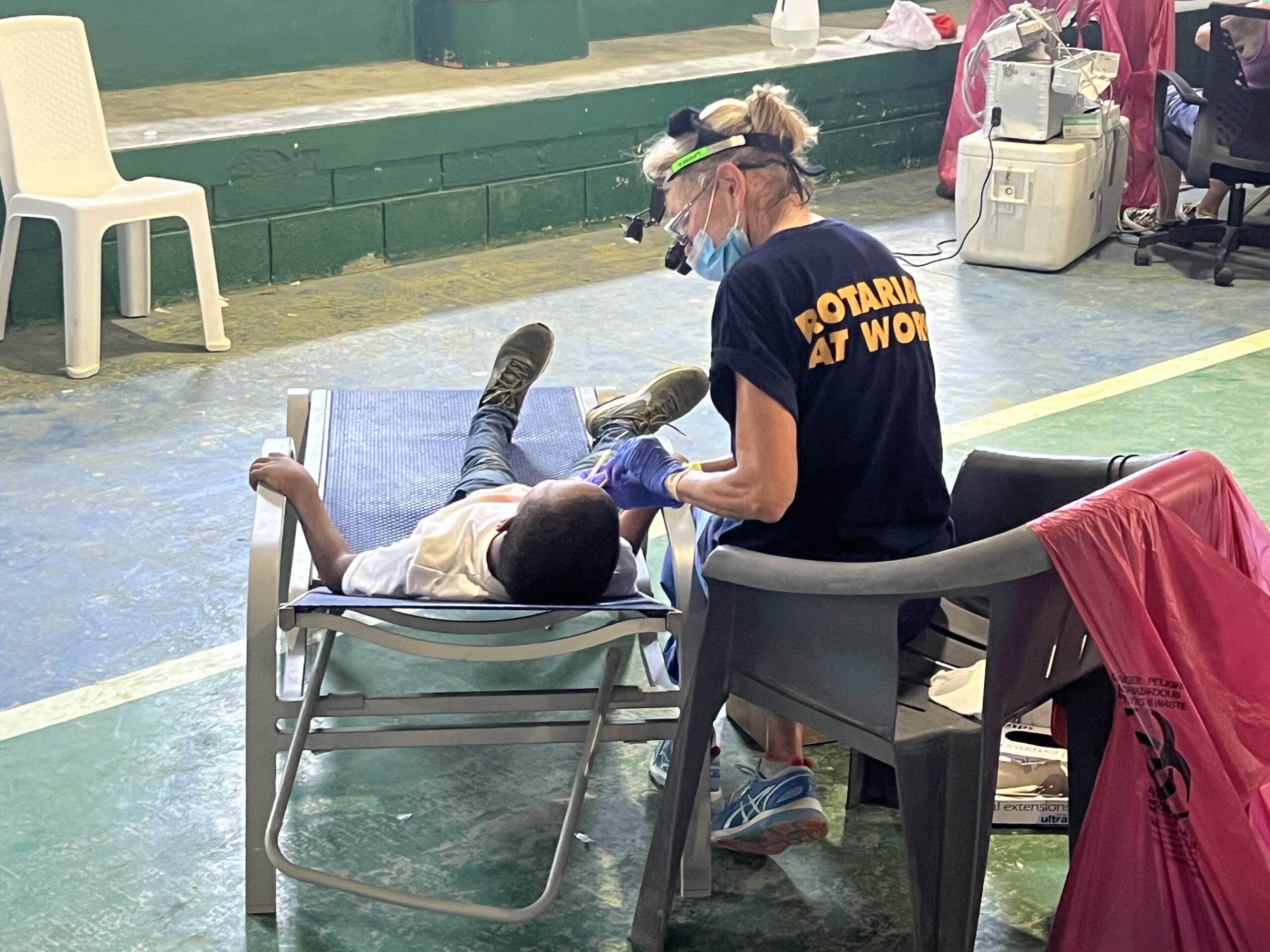Behind the tourist paradise on the island of Roatan, Honduras, right behind where the umbrella drinks light up life for the tourists, together with background music, behind where you can snorkel over a colorful reef, namely the world’s second largest. There lies the border with the third world, with inhabitants who are abjectly poor. Many live in log cabins and live from hand to mouth. And the pandemic has in many ways made it even worse.
Jose Santos Guardiola – a secondary school in the largest village of Coxen Hole immediately resembles a prison as it is surrounded by a wall with barbed wire on top of it. Inside the gymnasium there is a buzz of children. Some are waiting for their turn, others have finished, with swollen cheeks and hoping that the pain will soon pass.
Outside, a diesel generator works hard to keep the dental equipment running. Four patient stations with dental drills and disinfection equipment are set up. On long plastic tables there are disinfected dental instruments. The dentists work diligently with patients laying on sunbeds, under the light of the headlamps, helped by assistants.
A lot is improvised here.
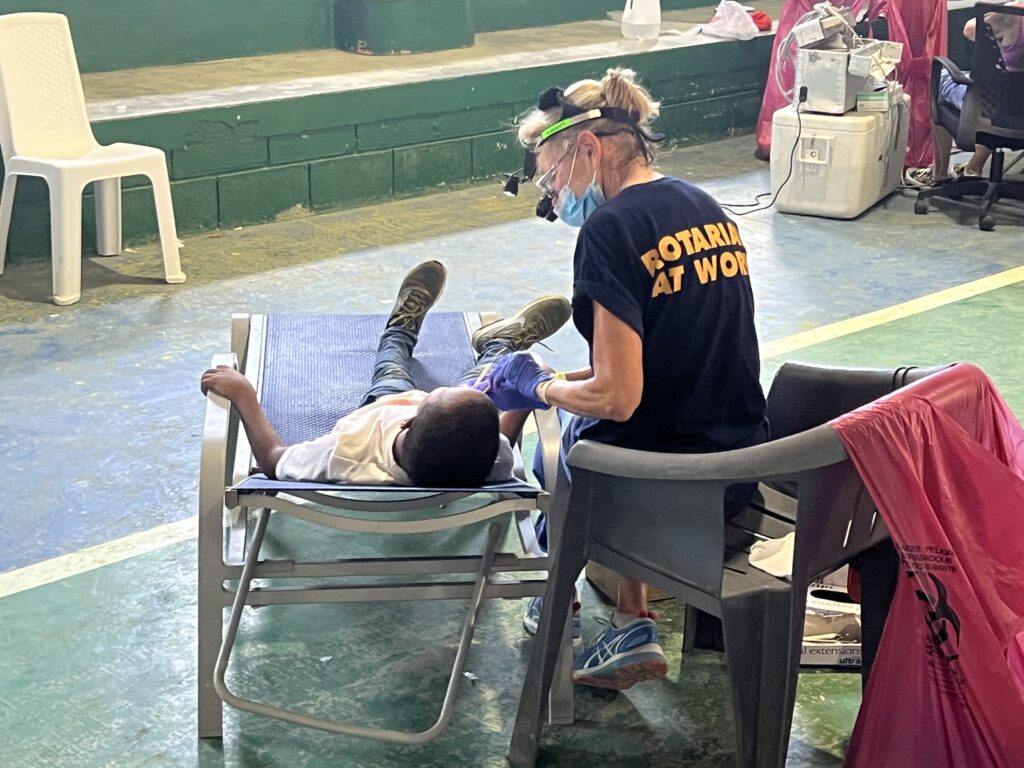
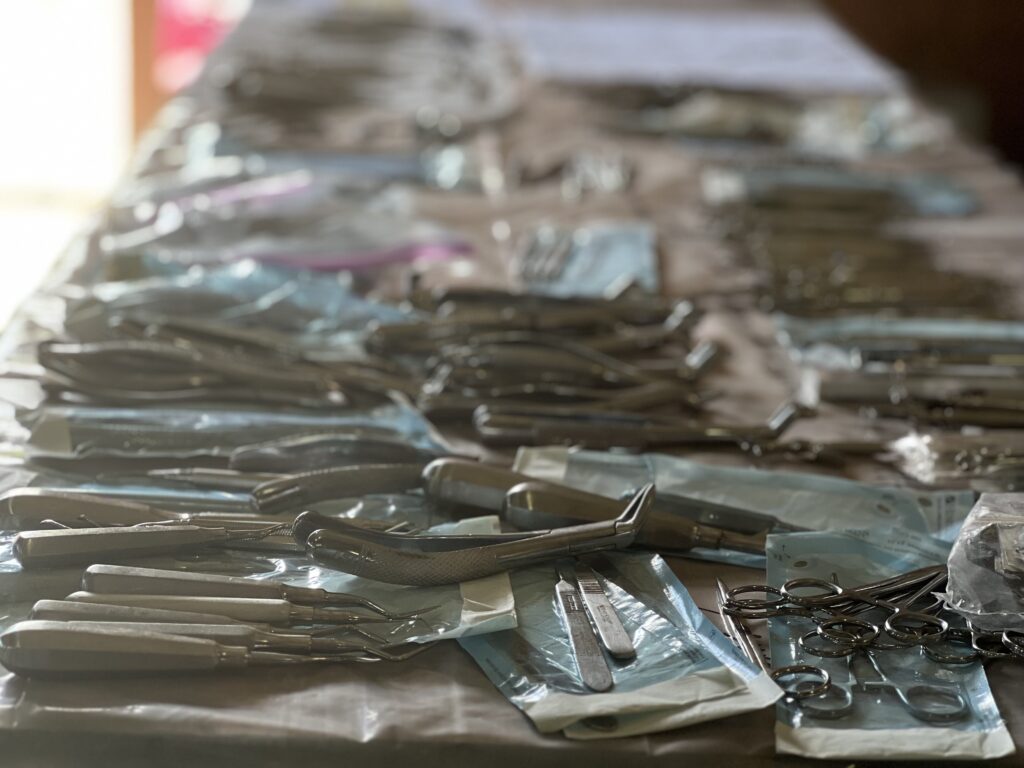
The Dental Brigade is a concept of a number of dentists from Colorado, USA, who go out and perform free dental treatment primarily in poor countries, for those who cannot afford it. They are connected to The Rotary Club of Cherry Creek, Denver Colorado, and collaborate here with The Rotary Club of Roatan, supporting the implementation to the best of their ability.

During the five days that they have they work in conditions that cause the sweat to run freely at thirty-some degrees Celsius, Four American dentists and assistants treat 379 patients. Two days the clinic has been open to everyone and the last three for school children. They have done 1,000 treatments such as cleaning, fluoride treatment, fillings, extractions, and surgical procedures, worth USD 120,000 in the USA. It is a formidable operation, not only the dental care itself but also the logistics behind it.

Robert Mintz has led 25 such operations in Guatemala, Costa Rica, the Dominican Republic, Peru, Mexico, Ecuador, Argentina, Chile, Panama, and Nicaragua since 1991.
He tells us:
– It’s our first time on Roatan. The previous two missions in Honduras were on the mainland, near the port city of La Ceiba, where we treated around 250 young students at the Jungle School, many of them orphans.
He further says that there have been a total of 5 trips to Honduras.
– I feel a strong sense of satisfaction from being able to use my skills and knowledge to help others, Mintz says when we ask what this gives him personally.
– In addition, I have developed strong and lifelong friendships with the team members. Many live elsewhere in the US and we only see each other once a year.
They are aiming to return to Roatan next year at the same time.
And that’s what makes Ollie Diaz, the principal of the school in the isolated part of Roatan called St Helene happy. Of the 379 patients, 45 of them made the long trip to Coxen Hole.
– We have no dentist out there and had hoped that these dentists could come every year. The parents and children there are eternally grateful for this contribution.
Many of the young patients up to the age of 15 have never been to a dentist. Many have also never seen a toothbrush. And the majority of drinks they consume are full-scale sugary soft drinks, where Coca-Cola dominates, often purchased in big bottles at very low prices.
More about dental care on the island:
The dental battle
The dental hygiene and prevention crusade
Edited by: Lauran Timlin
